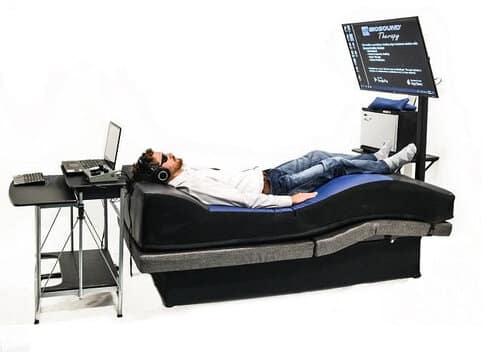Request a Callback
Court Evaluations
Are you or someone you know struggling with substance abuse or mental health issues? Court evaluations could be the key to getting the help you need.
Court evaluations play a vital role in determining appropriate treatment options for substance abuse and mental health patients. They provide a comprehensive assessment of an individual’s condition, including factors such as medical history, addiction severity, and mental health diagnoses. This evaluation helps the court make informed decisions about treatment options that best suit the individual’s needs.
Moreover, court evaluations serve as a valuable tool for monitoring progress and compliance with treatment plans. They provide a framework for ongoing assessments, helping track an individual’s improvement and adjust treatment as needed.
Importance of court evaluations
- Substance abuse and mental health disorders are complex conditions that require specialized treatment. Unfortunately, many individuals facing these challenges do not receive the care they need due to various reasons.
- May they receive inadequate or inappropriate treatment. This can lead to relapse, worsening of symptoms, and increased risk of harm to themselves or others.
- Court evaluations address not only the addiction or mental health disorder but also any underlying issues that may contribute to the condition.
- By doing so, court evaluations ensure that treatment plans are tailored to the individual’s unique needs, increasing the likelihood of successful recovery
We Work With Most Major Insurance Providers
- Aetna
- Amerihealth
- Anthem
- Beacon
- Behavioral Health Systems
- BCBS—Most BlueCross & BlueShield Plans
- Carelon Behavioral Health
- CareFirst
- Cigna
- ComPsych
- Coventry
- Empire BlueCross BlueShield
- GHI
- Highmark
- Humana
- Magellan
- MagnaCare
- Meritain Health
- MultPlan
- NYSHIP (New York State Insurance Plan)
- Optum
- Oxford
- PHCS
- Self-Pay
- TRICARE
- UHC
- UMR
- VA Insurance
- 90 Degree Benefits
- Aetna
- Amerihealth
- Anthem
- Beacon
- Behavioral Health Systems
- BCBS—Most BlueCross & BlueShield Plans
- Carelon Behavioral Health
- CareFirst
- Cigna
- ComPsych
- Coventry
- Empire BlueCross BlueShield
- GHI
- Highmark
- Humana
- Magellan
- MagnaCare
- Meritain Health
- MultPlan
- NYSHIP (New York State Insurance Plan)
- Optum
- Oxford
- PHCS
- Self-Pay
- TRICARE
- UHC
- UMR
- VA Insurance
- 90 Degree Benefits
At this time, we do not accept Medicaid or Medicare.
Types of court evaluations
There are several types of court evaluations, each serving a specific purpose. The most common types include:
1. Substance Abuse Evaluations
- Substance abuse evaluations assess an individual’s history of drug or alcohol use.
- They also evaluate the severity of addiction and the impact of substance use on an individual’s physical and mental health.
- The results of a substance abuse evaluation help the court determine appropriate treatment options, such as detoxification, counseling, or medication-assisted treatment.
2. Mental Health Evaluations
- Mental health evaluations assess an individual’s mental health status.
- They evaluate the presence of mental health disorders, such as depression, anxiety, or PTSD, and the impact of these conditions on an individual’s daily life.
- The results of a mental health evaluation help the court determine appropriate treatment options, such as medication, therapy, or hospitalization
3. Competency Evaluations
- Competency evaluations assess an individual’s ability to understand legal proceedings and assist in their defense.
- They evaluate an individual’s cognitive functioning, memory, and communication skills.
- The results of a competency evaluation help the court determine whether an individual is fit to stand trial or requires further evaluation and treatment.


The process of court evaluations
The process of court evaluations varies depending on the type of evaluation required. However, there are certain steps that are common to most evaluations. These include:
- Referral
The court may refer an individual for an evaluation based on various factors, such as a history of substance abuse or mental health issues, criminal charges related to substance abuse or mental health, or concerns about an individual’s competency to stand trial.
- Assessment
During the assessment, the evaluator gathers information about the individual’s medical history, substance use or mental health symptoms, and other relevant factors. They may use various assessment tools, such as questionnaires, interviews, or psychological tests, to gather this information.
- Report Writing
Once the assessment is complete, the evaluator writes a report summarizing their findings. The report includes a diagnosis, recommended treatment options, and any other relevant information that may help the court make informed decisions about the individual’s case.
- Court Appearance
In some cases, the evaluator may be required to appear in court to testify about their findings. This typically occurs in cases where the evaluation is related to an individual’s competency to stand trial or their mental state at the time of the offense.
Benefits of court evaluations for patients
Court evaluations offer several benefits for individuals with substance abuse or mental health issues. These include:
- Personalized Treatment
- Monitoring and Accountability
- Legal Support
Legal implications and considerations for court evaluations
There are several legal implications and considerations to keep in mind when it comes to court evaluations. These include:
- Evaluators must follow certain guidelines to protect the privacy of the individual being evaluated.
- Individuals must provide informed consent before undergoing a court evaluation.
- Evaluators must remain impartial and avoid any appearance of bias.


We believe in Holistic Therapies.

Biosound Therapy
Biosound Therapy is the integration of Biofeedback, Therapeutic Music, sound healing massage, and guided imagery. The guided imagery selections on the Biofeedback Bed are designed to address the guilt, fear, shame and trauma associated as underlying issues for most dealing with addiction. These moving meditations begin with a journey to a completely relaxed state of mind. Then, utilizing a unique echo effect, powerful and positive affirmations are delivered. This combination helps the client overcome those deep rooted, negative patterns of thought and behavior.
- Relieves pain & stress
- Assists with Detoxification Treatment
- Lowers cravings, impulse behavior and racing thoughts
- Lowers anxiety & depression

Equine Psychotherapy
Equine-Assisted Therapy is used to treat patients challenged with everything from drug and alcohol abuse dependency and post-traumatic stress syndrome. The therapy takes advantage of the mental and physical exercise that working with a horse can provide. Equine therapy:
- Helps clients learn to identify and cope with feelings
- Promotes Effective Communication Skills
- Helps Addicts Better Manage Behavior
- Teaches How to Set Boundaries
- Restores Self-Esteem and Self-Worth
*This is an optional, additional therapeutic therapy available after clinical treatment hours.

Massage Therapy
Clients at Relevance receive weekly massage therapy from our Licensed Therapists. Some additional benefits include:
- Release of ‘feel-good’ hormones. According to the American Massage Therapy Association (AMTA), massage helps to increase serotonin and dopamine (feel-good hormones) and decrease cortisol which is related to stress.
- Reduce agitation and anxiety and ease sleep problems.
- Provides a natural, alternative method of healing, free of drugs.
- Helps with the removal of metabolic waste. Therapeutic massage triggers or stimulates the body’s parasympathetic nervous system. This in turn can increase circulation and promote the effectiveness of the lymph system. The lymph system helps to alleviate pain symptoms and is responsible for removing the body’s metabolic waste build-up.
- Provides the client with a connection to their body, and improves or increases body awareness.
Challenges of court evaluations
Court evaluations are not without their challenges. Some of these include:
- Stigma make it difficult for individuals to seek help, even when they are aware of the treatment options available to them.
- Many individuals face financial or logistical barriers that prevent them from accessing the care they need.
- Evaluators may miss important information or make incorrect diagnoses, which can impact an individual’s treatment options.
- Lengthy Process is challenging for individuals with severe addiction or mental health issues who require immediate care.
How to prepare for a court evaluation
If you or someone you know is facing a court evaluation, there are several things you can do to prepare. These include:
- It is important to be honest about your symptoms during the evaluation. This will ensure that the evaluator has accurate information to make informed decisions about your care.
- Provide all relevant information to the evaluator, including medical history, past treatment, and any medications you are currently taking.
- If you have any questions about the evaluation process or the treatment options recommended, do not hesitate to ask.
- It is important to seek support from family, friends, or a mental health professional during this time.


The value of court evaluations
Court evaluations play a critical role in ensuring that individuals with substance abuse or mental health issues receive the care they need. By providing a comprehensive assessment of an individual’s condition, court evaluations help determine appropriate treatment options that are tailored to the individual’s unique needs. They also provide ongoing monitoring and accountability, ensuring that individuals receive the care they need to make progress towards recovery.
Why Relevance Recovery?
We stand as your dedicated partner in the journey towards mental health and well-being. Our comprehensive platform offers invaluable resources and insights into managing mental health challenges and overcoming substance abuse. Through our award-winning programs, we provide effective strategies for relapse prevention, ensuring a lasting and transformative recovery experience. Join us in paving a path towards a healthier, more fulfilling life.


Get the Help You Need, Now.
Start your journey to substance abuse recovery with us in New Jersey today.
